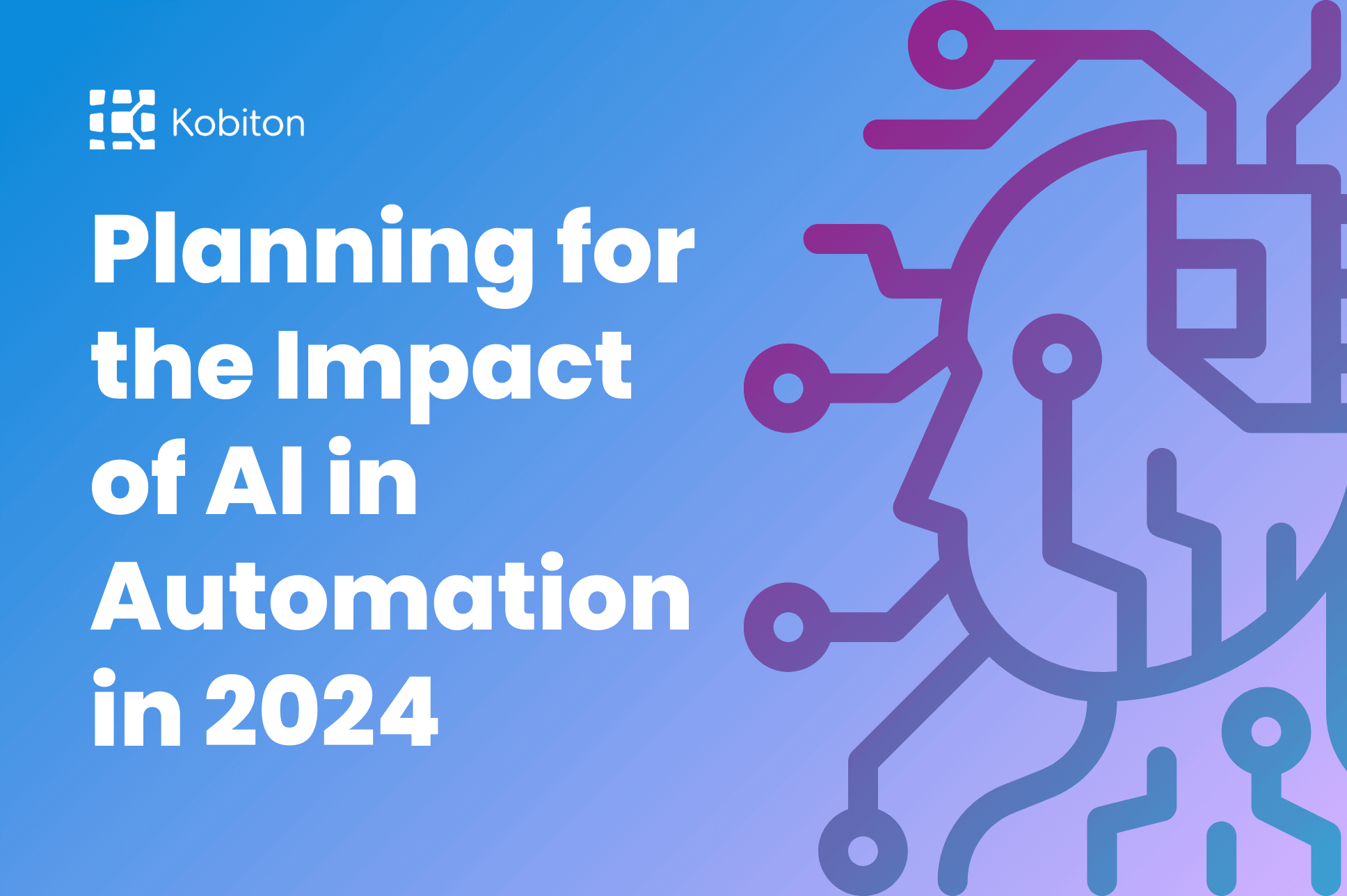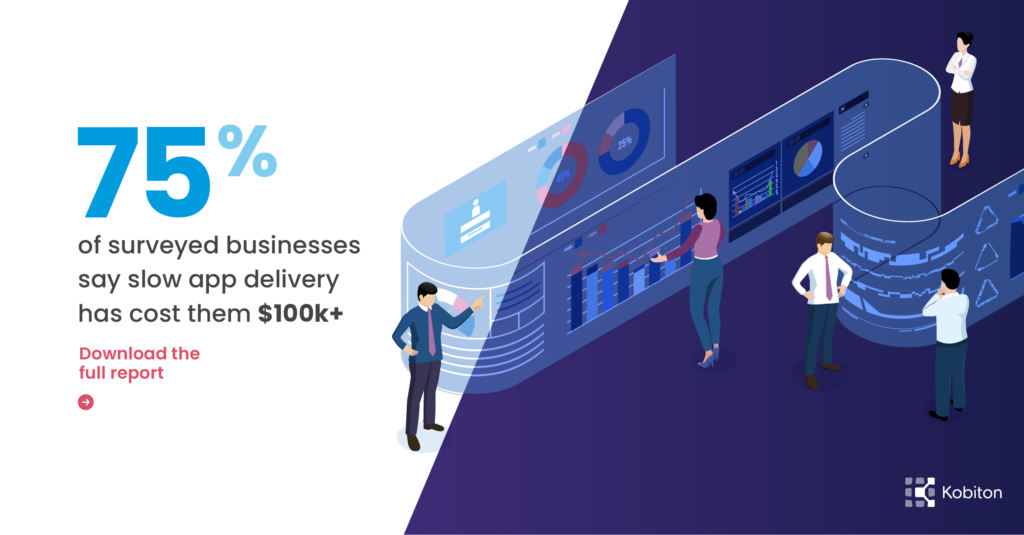
Planning for the Impact of AI in Automation in 2024

Cara Suarez
Looking ahead to the new year? You’re not alone. As budgets are finalized for 2024, the challenges are clear; Resources, especially in QA and mobile app testing, are stretched thin.
But here’s the pragmatic truth: Understanding the direct financial impact of slow app delivery on revenue gives you a compelling case for additional investment in testing resources and capacity.
Understanding what other developers see impacting our industry can pay dividends, and Kobiton’s 2024 report, State of Mobile App Delivery, Test Automation and AI, is packed with data to help you think smarter and plan for a more successful 2024.
Obviously, accelerated timelines and development expectations can have financial repercussions as well. A third of organizations told us that they lose revenue due to slow mobile software release cycles, and our full report considers customer satisfaction and its own impact.
We also know that more than three-quarters of businesses depend on mobile apps for at least 25 percent of their total revenue. Care to guess the total financial impact of slow software development timelines? It’s a lot.
Delving deeper into the report’s findings, it becomes evident that the reliance on mobile applications is not a mere luxury, but a fundamental necessity for a significant majority of businesses. Organizations admit that slow app delivery costs over $100k annually, with larger enterprises reporting the impact at over $1m. The interplay between software development timelines and revenue streams is poised to become a defining factor for businesses striving to maintain their competitive edge in 2024.

We also know that businesses face more pressure than ever to deliver application updates and enhancements with accelerated mobile release cycles. Yet, budget constraints and limited availability of development and Quality Assurance (QA) staff cause a majority of organizations to struggle to meet software delivery goals because they can’t complete adequate tests with adequate device coverage as quickly as they develop new code.
Survey data shows that rapid software delivery cycles have become the norm in the context of mobile development – which is no surprise, given the pervasive influence of DevOps across all corners of the software development landscape. DevOps encourages teams to push out application updates on a regular basis using an approach called continuous delivery, which emphasizes highly automated and repeatable software delivery practices.
However, despite the widespread adoption of DevOps practices in mobile development among survey respondents, the software delivery pipelines at many organizations do not move as fast as they need to to maximize revenue and customer engagement.
Mobile development teams are learning to work on accelerated delivery cycles — would you believe that 58 percent of our respondents indicated that they release updates at least once per week?
But that’s still not enough to address marketplace needs, and delivery processes are taking longer than they should. In our report, we share that half of our respondents told us that limited financial resources for development and QA initiatives slow down delivery.
Kobiton surveyed 100 developers and software testing professionals who were directly involved in the development and testing of mobile apps, and employed at companies with at least 100 employees. To learn more about what they had to share – and to gain insight into how the 2024 state of mobile delivery can impact your own organization – download the full report today.